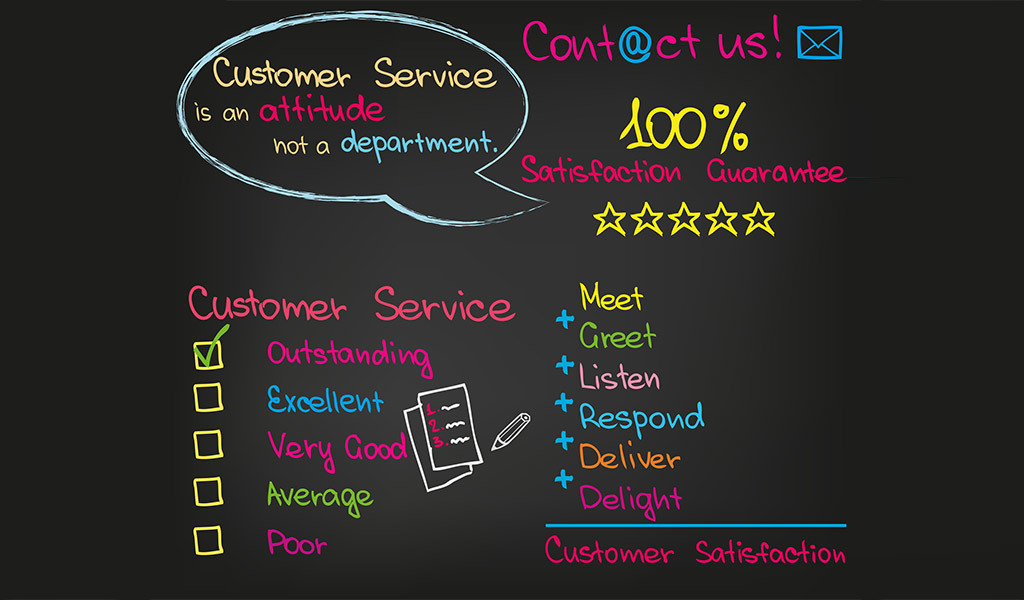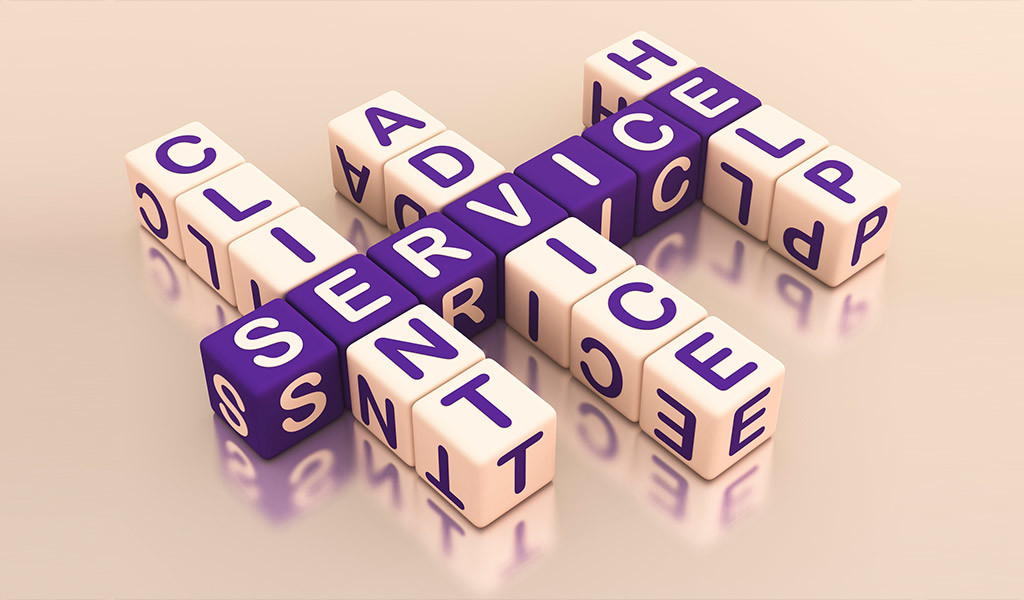
Highly skilled and experienced customer service agents are in high demand! Not only are customer expectations rising to unprecedented heights, but the increasingly customer-focused nature of business in 2020 has increased demand for agents. According to Forrester, 46% of global contact center decision-makers anticipate their contact centers growing by 5-10% in the next year. Around 14% of these decision-makers project growths of more than 10%!
It’s clear that contact centers are booming, and customer service agents are playing a key role in this customer-focused era. However, there’s only a limited amount of highly skilled agents with several years of experience under their belt. Not all companies have the reputation or resources to attract the best agents, so they have to train the best agents instead. That’s what we’re focusing on today. We want to offer some helpful tips on how you can train your next generation of agents to take your business to the next level.
Why Offering Great Customer Service Is Paramount
You may be thinking “of course I know why great customer service is important, it leads to more sales”. While this is true, it’s not the full picture. Do you know how much of a difference excellent customer service can make to your company? Below we have compiled our favorite customer service statistics so you can see the direct impact your agents have on the success of your business.
- According to Dimensional Research, 52% of consumers say they have made an additional purchase due to a positive customer service experience.
- According to AE, 70% of consumers say they have pledged to support a business that delivers great customer service.
- Another one from AE – Americans will pay 17% to use a business that has a great customer service reputation.
- Around 30% of consumers say the most important aspect of customer service to them is a knowledgeable and friendly agent.
- Approximately 90% of customers are influenced by positive reviews when buying products. People will review your company based on their experience with your customer service agents.
- A noteworthy 27% of Americans say “lack of effectiveness” is the number one reason they are frustrated with customer service.
- For 12% of Americans, there number one customer service frustration is lack of speed.
- The average American will tell 15 people when they’ve had a poor customer service experience.

How to Train Your New Customer Service Agents to Succeed
Team Bonding and Morale
Customer service jobs are plagued by a high turnover rate that causes businesses to suffer. When agents quit their jobs for whatever reason, the business is now without an agent that is well trained and knowledgeable about their business. Agents leave customer service jobs for several reasons, but one of the key reasons is not feeling adequately supported in their role.
Customer service jobs are stressful and require a high degree of emotional intelligence. Agents will be dealing with conflict and criticism every day. This can be emotionally taxing, and even more so when the agent feels alone in their struggles.
This is why it’s essential to get new agents acquainted with the team straight away. Agents need to help each other and work together by offering advice, solutions, and support. Here are a few ways you can encourage team bonding:
- Arrange for new agents to have lunch or other breaks with more experienced agents or arrange a time where they can socialize in a non-pressured environment.
- Encourage social activities outside of work. Of course, you can’t force your agents to meet up with each other outside of work, but you can arrange social events for anyone willing.
- Allow agents time to settle in and meet the team. If you shove your new agents into the job straight away, they won’t have time to meet their teammates and build a relationship with them.
- Assign an experienced agent to give the new agents a tour of the office and answer any questions.
Prepare for All Outcomes
It’s important to train your agents on how to behave in different scenarios. Don’t just stick to the most common customer service problems they are likely to encounter but try to think outside the box. The ability to adapt is what separates good agents from great agents. Some people are better at adapting to surprising or unusual events than others, but like anything, practice makes perfect.
Use uncommon scenarios in your training exercises and allow agents the freedom to respond how they think is most appropriate. Don’t be too critical if the new agent takes an approach you didn’t see coming or you think is ineffective. People generally get defensive when it comes to criticism so it’s best to focus on the parts they got right. Praise their creativity and problem-solving skills, but then offer the more appropriate solution. If you go straight in with the criticism you risk the agent becoming more hesitant and nervous going into new situations.
Provide the Right Tools for the Job
Customer service is an inherently people-focused job, but that doesn’t mean technology doesn’t play an equally important role. Your agents will always be supported by technology in their role and this technology can either make their job harder, or easier. If you want to nurture highly effective and productive customer service agents, then you need to make their job easier by picking the right solutions.
Ideally, you should be using an omnichannel platform so you can take a unified approach to customer service. An omnichannel platform is better for everyone – the business, the customer, and the agent. Agents only have to learn one platform, and they will be able to navigate it easier to meet customers’ needs in real-time. There’s no more switching between platforms and accepting the inevitable delays this causes.
Customer service jobs are completely different today than they were even five years ago. Chatbots have seen widespread adoption as they continue to advance. Live Chat is an excellent way of making your customer service operation more versatile. These tools aren’t meant to replace agents, but rather support them in their role. With chatbots handling the bulk of the simple customer queries, agents are increasingly focused on complex problem solving and de-escalating frustrated customers. The more agents do this, the more skilled they become at the hard stuff, and the more useful they are to your business. Your goal should be to train agents that can tackle any problem and calm even the iratest of customers. Only agents supported by the right tools can do this.
Involve Them in the Customer Journey and Stress the Importance of Follow-Through
Your agents must understand the overall goal of the customer service operation. Sure, your agents might have targets and goals to meet, but these shouldn’t surpass the core of what it means to provide excellent customer service. You should be striving to create memorable experiences for your customers. You should strive to create a positive emotion in your customers. You should strive to meet or exceed their expectations.
To explain what we mean here let’s look at an example. A customer calls the contact center and asks for confirmation on a recent purchase. They have received the confirmation email, but want further clarification on a particular thing, like when the delivery is likely to be or what your returns policy is. Unfortunately, the customer is disconnected during the call because their signal dropped. At this point, the agent could just move onto the next call. After all, there are more calls in the line, right?
Wrong. It’s important to put yourself in the mind of the customer. They were feeling some level of anxiety when they made the call. They were uncertain about something and wanted assurance from your company so they could put their mind at ease. When the call disconnected, they probably felt frustrated, not only because they don’t have an answer, but because they will have to call again and repeat their question. It’s not your company’s fault that their signal dropped, but they will be experiencing a negative emotion regardless. They will associate a negative feeling with your company, and this is bad for business.
Instead, the agent can immediately send the customer an email after the call drops. The agent can answer their questions and thank them for bringing it to their attention that the confirmation email is missing a few things. The agent can tell the customer they will pass on their concerns to the relevant team.
This will surprise the customer with exactly what they wanted and replace the negative emotion with a positive one. The customer will also feel validated and assured that their query was legitimate.
To make great agents you have to encourage them to see the whole customer journey and not just the role they play in it.

Empower Your Agents – Put Your Trust in Them
No one likes to be micromanaged. When you control every aspect of someone’s job, you’re telling them that you don’t trust them to make their own decisions, and you’re also robbing them of any satisfaction from doing good work. They won’t feel that they deserve the credit for a successful interaction if they played no part in it other than repeating a script.
Give your agents the tools they need like an omnichannel platform, powerful AI and automation tools, a responsive Live Chat solution, and let them get to work. You hired them due to their emotional intelligence and fitness for the role, so let them be the expert wherever possible.
Empowered and engaged agents are also better for customers. Customers can tell when they are being fed lines from a script and it’s not what they want. They want to talk to real people and get a feel for the people who make your business what it is.
Training is Key!
There are several elements to cover here, and they’re all extremely important.
- Your training program must be engaging and varied. Don’t bore your new agents with eight-hour days of PowerPoint presentations. They will switch off and stop learning. This isn’t intentional, it’s just human nature. Our brains need constant varied stimulation for us to stay focused. If you want your agents and therefore your customers to benefit from your agent training, then make it engaging and fun. Break up the training day with hands-on activities, group exercises, team bonding exercises, little quizzes, and so on.
- Don’t just rely on role-playing. At some point in your training program, the agents should practice real call handling. Role-play is a great way to learn the basics and to ease their way into the experience, but it’s no substitute for the real thing. Remember that once the training is over, you’re trusting these new customer service agents to handle real calls all day. Going from 0 to 100 is not a good idea.
- Training is never over. Don’t just train your agents once and then consider their training complete. You should be continually assessing what works and what doesn’t. Did one agent do something amazing? Share this with the rest of the team in weekly or monthly meetings. Give agents refresher training when you can so that the core skills stay at the front of their minds.
- Nurture your agents with praise. If someone is performing well during training, tell them. This should also continue beyond the training because remember, training is never complete. Each time you praise your agents for good work, they will be more likely to focus on the things they do well and become even better at them. It’s a good idea to encourage agents to praise each other and also encourage upper management to listen to calls and praise agents.
- Use analytics to tailor your training programs. Are there any trends in your data that suggest your customer service operation needs improvement? If so, bake advice and solutions to these problems into your training. This way agents will understand from day one where to focus their attention. There can be good trends too, and you should use these to highlight what your company excels at and what you expect from your new agents.